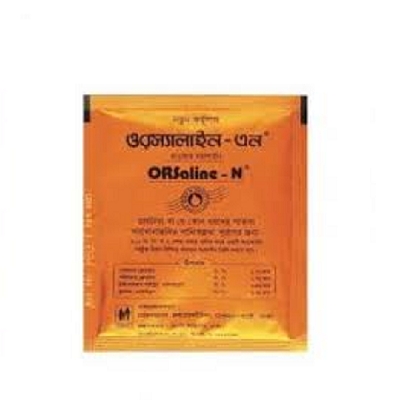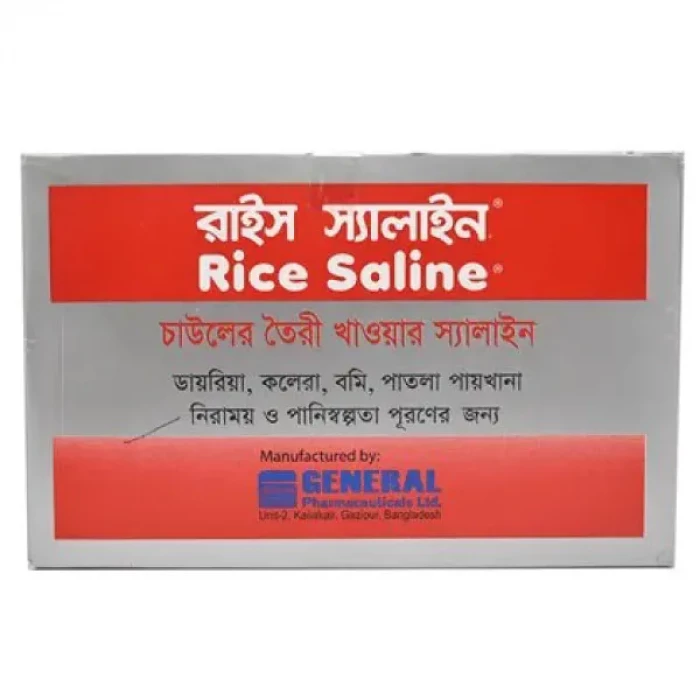
✔ 100% Authentic Product
👁️ Currently Viewing 3586
1 sachet.
Oral Rehydration Salt (Powder).
Company Eskayef Bangladesh Ltd.
Discount
Price: ৳ 6
MRP:
৳
6
6%
Off

100% Genuine Products, Guaranteed

Safe & Secure Payments, Always

Fast, Secure & Efficient Delivery

Proper Packaging
 Cash on Delivery - All over Bangladesh
Cash on Delivery - All over Bangladesh Regular Delivery - 12-24 Hours, Dhaka City* Charge Tk.39-59
Regular Delivery - 12-24 Hours, Dhaka City* Charge Tk.39-59 Regular Delivery - 24-48 Hours, Other Cities* Charge Tk.99-110
Regular Delivery - 24-48 Hours, Other Cities* Charge Tk.99-110
 ফ্রি ডেলিভারিঃ - ৯৯৯ টাকা+ অর্ডারে, ঢাকা
শহরে
ফ্রি ডেলিভারিঃ - ৯৯৯ টাকা+ অর্ডারে, ঢাকা
শহরে ফ্রি ডেলিভারিঃ - ২৯৯৯ টাকা+ অর্ডারে, ঢাকার
বাহিরে
ফ্রি ডেলিভারিঃ - ২৯৯৯ টাকা+ অর্ডারে, ঢাকার
বাহিরে
100% Genuine Products, Guaranteed
Safe & Secure Payments, Always
Fast, Secure & Efficient Delivery
Proper Packaging
 Cash on Delivery - All over Bangladesh
Cash on Delivery - All over Bangladesh Regular Delivery - 12-24 Hours, Dhaka City* Charge Tk.39-59
Regular Delivery - 12-24 Hours, Dhaka City* Charge Tk.39-59 Regular Delivery - 24-48 Hours, Other Cities* Charge Tk.99-110
Regular Delivery - 24-48 Hours, Other Cities* Charge Tk.99-110 ফ্রি ডেলিভারিঃ - ৯৯৯ টাকা+ অর্ডারে, ঢাকা
শহরে
ফ্রি ডেলিভারিঃ - ৯৯৯ টাকা+ অর্ডারে, ঢাকা
শহরে ফ্রি ডেলিভারিঃ - ২৯৯৯ টাকা+ অর্ডারে, ঢাকার
বাহিরে
ফ্রি ডেলিভারিঃ - ২৯৯৯ টাকা+ অর্ডারে, ঢাকার
বাহিরে
✅ Description:
Composition
Reduced osmolarity: 1/2 liter formula (10.25 gm): Per sachet contains-
- Sodium chloride 1.30gm
- Potassium chloride 0.75 gm
- Tri-sodium citrate dihydrate 1.45 gm
- Glucose anhydrous 6.75 gm
Higher osmolarity: 1/2 liter formula (13.95 gm): Per sachet contains-
- Sodium chloride 1.75 gm
- Potassium chloride 0.75 gm
- Tri-sodium citrate dihydrate 1.45 gm
- Glucose anhydrous 10 gm
Higher osmolarity: 1 liter formula (27.50 gm): Per sachet contains-
- Sodium chloride 3.5 gm
- Sodium biocarbonate 2.5 gm
- Potassium chloride 1.5 gm
- Glucose anhydrous 20 gm
Indications
Oral Rehydration Salt is indicated in Diarrhea (treatment) and Electrolyte depletion (prophylaxis and treatment)
Therapeutic Class
Oral electrolytes preparations
Description
Pharmacology
Oral rehydration salts are given orally to prevent or treat dehydration due to acute diarrhoea. Essential water and salts are lost in stools and vomiting, and dehydration results when blood volume is decreased because of fluid loss from the extracellular fluid compartment. Preservation of the facilitated glucose-sodium co-transport system in the small-bowel mucosa is the rationale of oral rehydration therapy. Glucose is actively absorbed in the normal intestine and carries sodium with it in about an equimolar ration. Therefore, there is a greater net absorption of an isotonic salt solution with glucose than one without it.
Potassium replacement during acute diarrhoea prevents below-normal serum concentrations of potassium, especially in children, in whom stool potassium losses are higher than in adults. Bicarbonates are effective in correcting the metabolic acidosis caused by diarrhoea and dehydration.
Dosage & Administration
Children less than 2 years: After each loose stool or vomiting 10 to 20 spoonful (50-100 ml).
Children 2 to 10 years: After each loose stool or vomiting 100-200 ml of prepared oral saline.
Adult and children above 10 years: After each loose stool or vomiting 200-400 ml of prepared saline.
Interaction
There are no known drug interactions and none well documented.
Contraindications
No known contraindications
Side Effects
No known side effects
Pregnancy & Lactation
FDA has not yet classified the drug into a specified pregnancy category
Precautions & Warnings
Depressed renal function, severe continuing diarrhoea or other critical fluid losses may need supplementation with parenteral fluids along with oral saline. Solutions containing acetate or gluconate ions should be used with caution, as excess administration may result in metabolic alkalosis. Solutions containing dextrose should be used with caution in patients with known subclinical or overt diabetes mellitus.
⚠️Disclaimer:
At ePharma, we’re committed to providing accurate and accessible health information. However, all content is intended for informational purposes only and should not replace medical advice from a qualified physician. Please consult your healthcare provider for personalized guidance. We aim to support, not substitute, the doctor-patient relationship.









